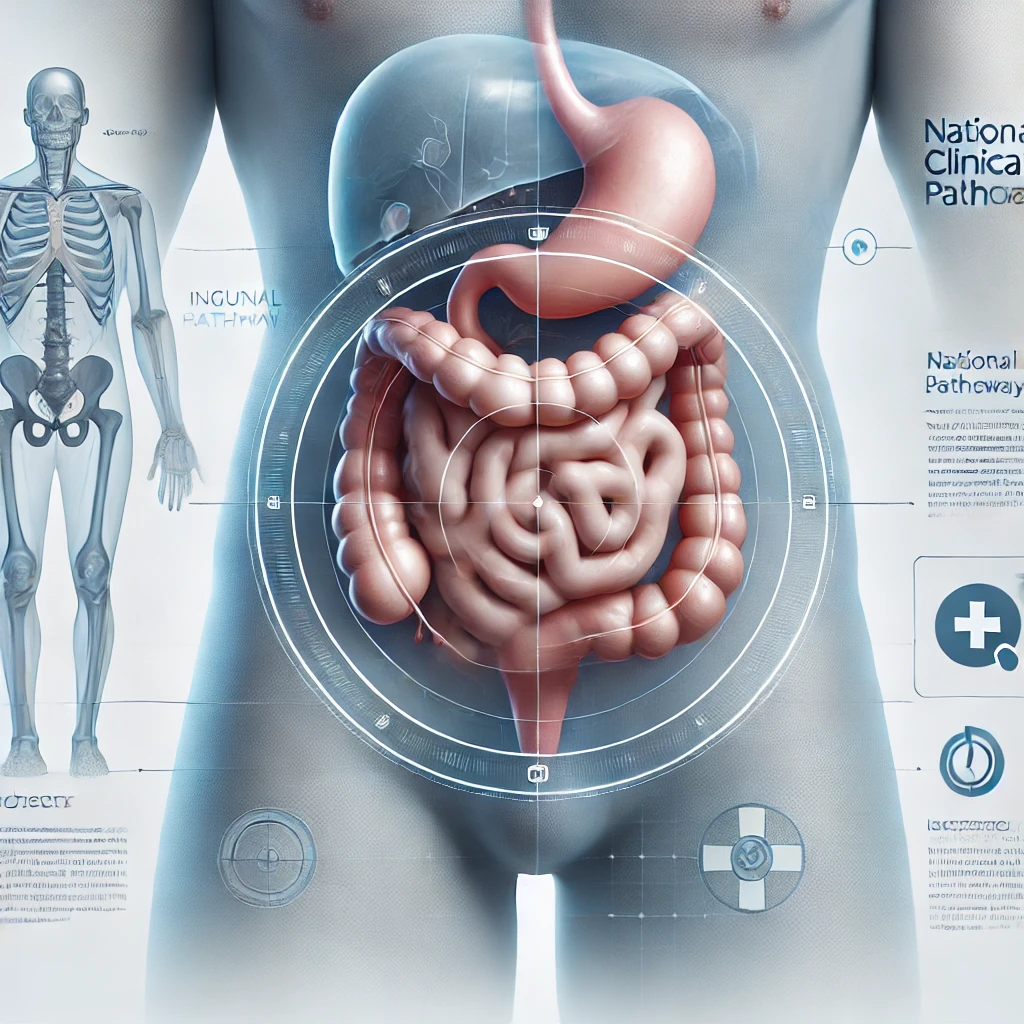NCP on Inguinal Hernia is an important topic to understand, especially when it comes to healthcare and nursing care. An inguinal hernia is a condition where part of the intestine or fatty tissue pushes through a weak spot in the lower abdominal wall or groin. This condition is common in both children and adults, though it is more frequently seen in men. The NCP on Inguinal Hernia helps nurses and healthcare providers plan and provide the best care for individuals who have this condition, ensuring they recover properly after surgery or any other necessary treatment.
Thank you for reading this post, don't forget to subscribe!
Inguinal hernias often cause pain or discomfort, especially when coughing, bending over, or lifting heavy objects. A nurse’s role in NCP on Inguinal Hernia is to carefully assess the patient’s symptoms, provide appropriate interventions, and help them through the recovery process. The care plan includes addressing the patient’s physical health needs and educating them about lifestyle changes that could prevent the hernia from coming back.
For those who are newly diagnosed with an inguinal hernia, the NCP on Inguinal Hernia can be a guiding tool to ensure that both the healthcare team and the patient understand how to manage the condition. This article will explore the key elements of NCP on Inguinal Hernia, its significance, and the steps involved in creating an effective care plan. Additionally, it will discuss common symptoms, nursing interventions, goals, and expected outcomes related to the condition.
Patient Information Example
Note: The following patient information is for example purposes only. It is not based on real-life individuals.
- Patient Name: Ramesh Patel
- Age: 45 years
- Gender: Male
- Medical History: Ramesh has a history of heavy lifting due to his job as a warehouse worker. He has previously had mild discomfort in the groin area, which has now progressed to more noticeable pain and swelling.
- Type of Inguinal Hernia: Indirect inguinal hernia
- Symptoms: Ramesh complains of a bulge in his lower abdomen that becomes more pronounced when standing or lifting heavy objects. He also experiences sharp pain in the area, especially when coughing or sneezing.
- Medical Diagnosis: Inguinal Hernia
- Admission Date: 10th December 2024
- Care Plan Initiation Date: 12th December 2024


NCP on Inguinal Hernia: Nursing Care Plan
The NCP on Inguinal Hernia outlines specific steps that healthcare providers take to care for a patient who has this condition. Below is an example of a nursing care plan for Ramesh Patel, who has been diagnosed with an inguinal hernia.
Nursing Assessment
Nurses assess the patient’s condition to understand how severe the hernia is and identify any risks or complications. This assessment includes subjective and objective data collection.
| Nursing Assessment | Details |
|---|---|
| Subjective Data | Ramesh reports feeling a bulge in his lower abdomen, especially after lifting heavy items. He describes the pain as sharp and worsened by coughing. |
| Objective Data | A visible bulge is observed in the groin area, particularly when the patient is standing. The area is tender to touch, and the patient appears uncomfortable. |
| Vital Signs | BP: 130/85 mmHg, Pulse: 88 bpm, Resp: 18/min; all are within normal limits. |
| Hydration Status | No signs of dehydration; the patient is hydrated and is encouraged to maintain fluid intake. |
| Pain Assessment | The pain is rated 7/10 in severity and is worsened by physical activity, such as coughing or lifting. |
| Laboratory Values | Blood tests are normal; no signs of infection or other underlying issues. |
Nursing Diagnosis
Based on the nursing assessment, the following diagnoses are made for Ramesh Patel:
- Pain related to the presence of an inguinal hernia, as evidenced by sharp pain in the groin area.
- Risk for impaired tissue integrity related to the hernia bulge and potential for strangulation.
- Risk for activity intolerance related to pain and discomfort from the hernia.
Nursing Interventions and Rationales
The nursing interventions are designed to address the patient’s symptoms, reduce the risk of complications, and promote recovery.
| Nursing Interventions | Rationales |
|---|---|
| 1. Encourage bed rest and limiting physical activity. | This helps reduce strain on the abdominal area and minimizes discomfort. |
| 2. Apply a hernia support garment or truss. | This helps to support the hernia, reduce the bulging, and provide comfort. |
| 3. Administer prescribed pain medications, such as acetaminophen or ibuprofen. | Pain control is essential to help the patient feel more comfortable and reduce discomfort. |
| 4. Educate the patient on avoiding heavy lifting and straining. | Prevents further aggravation of the hernia and reduces the risk of complications, such as strangulation. |
| 5. Monitor for signs of strangulation (severe pain, redness, or tenderness in the hernia area). | Early identification of complications helps prevent serious issues like bowel obstruction. |
| 6. Provide emotional support and encourage discussion of surgery options. | Knowing the treatment options can reduce anxiety and help the patient prepare mentally for surgery. |

Nursing Goals
The goals of the NCP on Inguinal Hernia are to ensure that Ramesh’s pain is controlled, he understands how to manage the hernia, and he avoids complications.
- Pain Reduction: Ramesh will report a decrease in pain to a level of 4/10 or less within 48 hours of intervention.
- Prevent Complications: The patient will demonstrate an understanding of how to reduce the risk of strangulation and other hernia-related complications.
- Improved Activity Tolerance: Ramesh will gradually regain the ability to engage in daily activities without excessive pain or discomfort.
Evaluation and Expected Outcomes
After implementing the nursing care plan, healthcare providers will evaluate Ramesh’s progress.
- Pain Control: Within two days, Ramesh reports a reduction in pain, and he is able to manage his discomfort with over-the-counter medications.
- Complication Prevention: Ramesh shows an understanding of how to care for his hernia, and there are no signs of strangulation or bowel obstruction.
- Activity Tolerance: Ramesh is able to gradually increase his physical activity, as recommended, without experiencing significant pain.
Common FAQs about NCP on Inguinal Hernia
1. What is an inguinal hernia, and how is it treated?
An inguinal hernia occurs when part of the intestine or fatty tissue pushes through a weak spot in the lower abdominal wall or groin. Treatment typically involves surgery to repair the hernia, but conservative measures like wearing a truss or support garment may be recommended for mild cases.
2. How does NCP on Inguinal Hernia help in treatment?
NCP on Inguinal Hernia provides a structured care plan that helps healthcare providers manage the patient’s pain, prevent complications, and guide the patient toward recovery. It focuses on both physical and emotional support.
3. What are the signs of complications from an inguinal hernia?
The main complication to watch for is strangulation, where the blood supply to part of the intestine is cut off. Symptoms include sudden, severe pain, redness, and tenderness in the hernia area, along with nausea and vomiting.
4. Can I lift heavy things with an inguinal hernia?
No, lifting heavy objects can worsen the hernia and increase the risk of complications. It is important to avoid strenuous activities and follow the doctor’s instructions to prevent further strain.
5. When should I consider surgery for an inguinal hernia?
Surgery is usually recommended when the hernia causes pain, grows larger, or leads to complications like strangulation. Your doctor will guide you on the best time for surgery based on your symptoms and overall health.
Recommended Resources
For more information about NCP on Inguinal Hernia and related topics, you can explore the following websites:
By understanding NCP on Inguinal Hernia, healthcare providers can offer better care to those suffering from this condition, helping them recover and prevent future complications.


